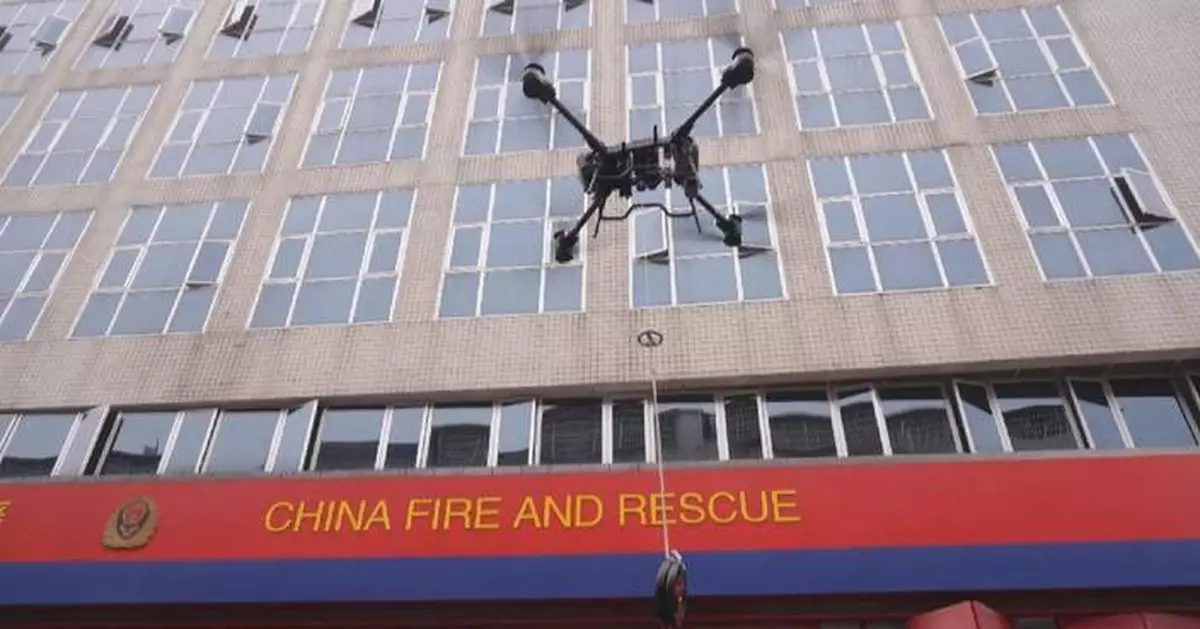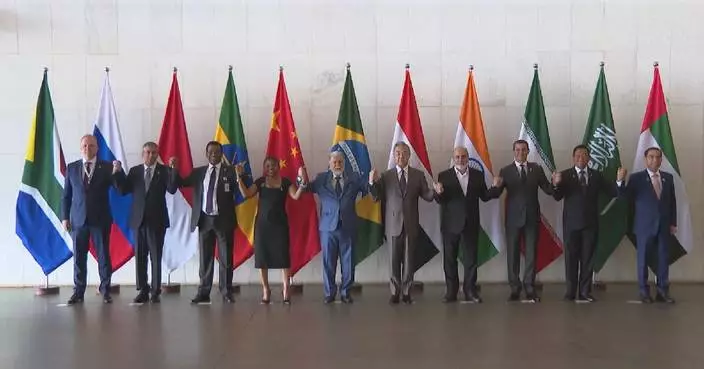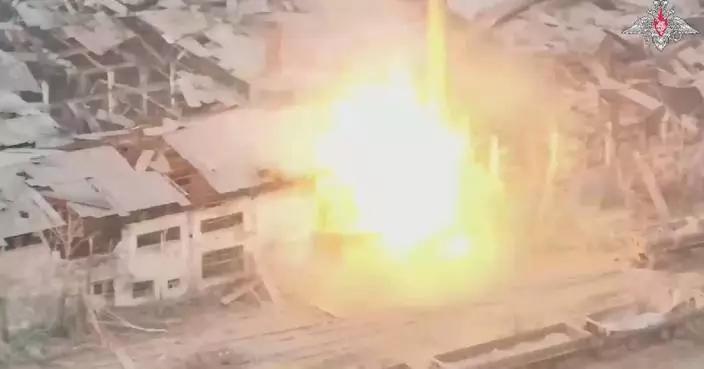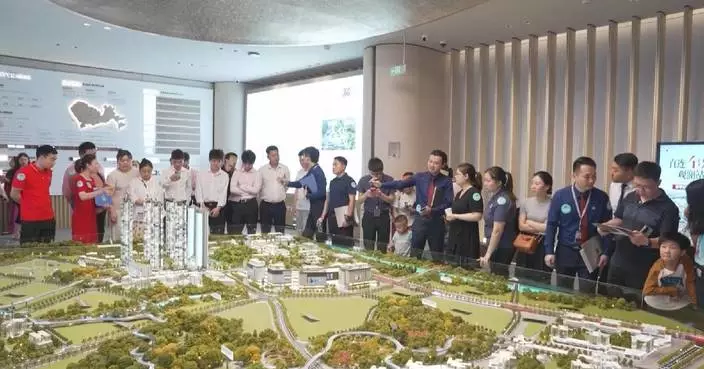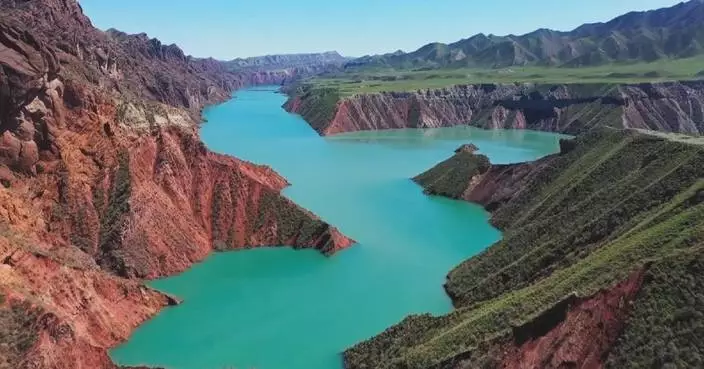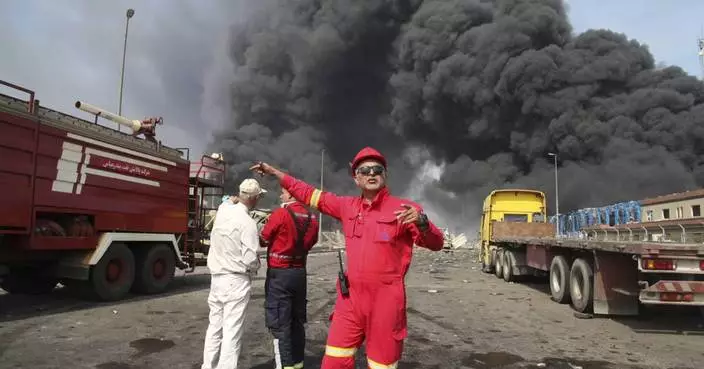Drones are playing an increasingly vital role in firefighting and emergency response efforts in China, boosting efficiency, precision, and safety while driving a technology-driven transformation of traditional emergency response methods.
With their extensive monitoring range, high mobility, and flexibility, drones have become indispensable to fire and emergency response teams nationwide, providing critical support for urban and forest firefighting.
A recent high-rise firefighting drill in Fuzhou City, in east China's Fujian Province, showcased the remarkable capabilities of drones in complex urban environments.
The drill simulated a fire in a 110-meter-high building, with the burned area exceeding 500 square meters. Within 20 seconds, drones equipped with fire hoses ascended to the targeted height, and in just 30 minutes, the fire was successfully contained -- nearly twice as fast as traditional firefighting methods.
"Drones offer significant advantages, including rapid response, high mobility, and minimal impact from ground obstacles. In emergencies, they can quickly reach the scene, assess the situation, and carry out rescue operations. The integration of drones with ground teams has transformed traditional firefighting methods, addressing challenges that were previously difficult or even impossible to overcome, fundamentally reshaping rescue strategies," explained Ma Yuchun, a senior commander at the National Fire and Rescue Administration's Forest and Grassland Firefighting and Aerial Rescue Division. In forest and grassland fire response, drones provide indispensable assistance, enabling faster and more accurate emergency detection while offering 24/7 aerial supervision.
In the Daxing'anling Mountains, one of China's largest forested regions located in the Inner Mongolia Autonomous Region of northern China, forest fire units have integrated drones into daily patrols. Equipped with thermographic imaging cameras, these drones can accurately detect fire sources even at night, enhancing early warning capabilities.
"As the responsibilities of our brigade continue to expand, drones are playing an increasingly vital role in rescue operations. Previously, firefighters had to conduct foot patrols or deploy helicopters to assess fire risks. Now, these tasks have been assigned to drones, significantly enhancing patrol efficiency, improving fire detection, and extending aerial surveillance capabilities for forest protection," said Sun Qi, deputy director of the Firefighting and Rescue Command at the Daxing'anling Mountains Forest Fire Unit.
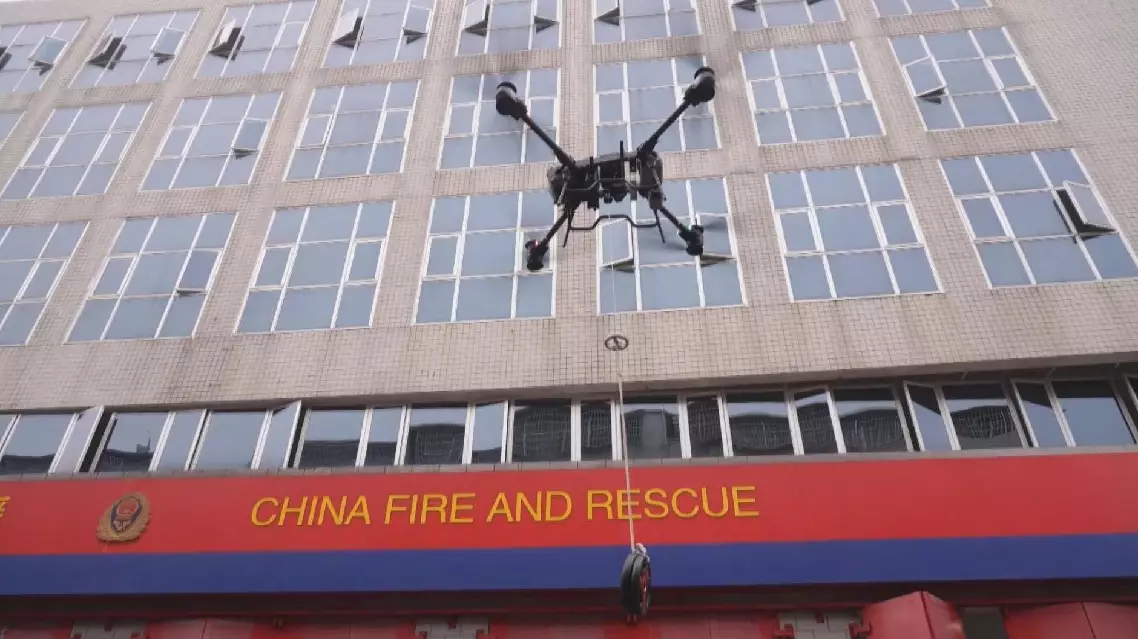
Drones transform firefighting, emergency response in China
A deal to give the United States exclusive access to Ukraine's mineral resources has sparked contention among Ukrainian experts, who have described earlier drafts of the agreement as "unacceptable" and "colonial."
As the war between Ukraine and Russia is showing signs of winding down, another battle is quietly unfolding beneath Ukrainian soil, with competitors eying Ukraine's vast reserves of critical minerals.
The United States and Ukraine have signed an agreement to establish the U.S.-Ukraine Reconstruction Investment Fund, the U.S. Treasury Department announced on Wednesday.
For some, the minerals deal with the United States offers a lifeline for Kiev's war-torn economy. For others, it signals the quiet start of a resource takeover, raising concerns about what Ukraine may be giving away in exchange for support.
Ukraine is rich in critical resources such as graphite, lithium, and titanium. All these are vital to electric vehicles, the aerospace industry, and the high-tech supply chain.
At a graphite quarry roughly 400 km south from Kiev, capital of Ukraine, the roads give way to deep ruts and scattered debris, which means the mine site falls short of normal operation in wartime.
According to Ukraine's geological survey, the country holds 22 of the 50 strategic materials identified by the U.S. as critical.
As the global race for these resources intensifies, Washington is eager to secure reliable access. Ukraine, desperate for investment for reconstruction, has opened its doors. However, according to experts, the negotiations have been tense.
"When we had the first draft of this agreement, it was absolutely awful, absolutely unacceptable for Ukraine. It was also like a colonial agreement," said Volodymyr Landa, senior economist at the Center of Economic Strategy of Ukraine.
The country's mining sector is in dire need of foreign capital. At one of Ukraine's largest graphite deposits, infrastructure is minimal, with a few dogs, a guard, and an elderly tractor driver.
A Lviv-based mine owner said water pipes freeze over in winter, bringing operations to a halt. More importantly, the war has drained both labor and funding.
"If the Ukrainian government presents it for free, for 50 years with free rent, our resources will lose from that," said Ostap Kostiuk, CEO of Zavallivskyi Graphite, located in the Kirovohrad region.
Following a tense and reportedly humiliating visit to Washington in March, Ukrainian President Volodymyr Zelensky appears to have softened his stance on a minerals deal he once said he would never sign. The move has triggered public outcry at home.
"Now they (the U.S.) say 'give me money, no, lithium' for the guarantees. It's not fair, I think," said a local resident.
"I definitely started to respect America less. He (Trump) is not interested in Ukraine actually ending the war," another added.
This graphite deposit represents only a fraction of Ukraine's untapped potential. An estimated 30 percent of its critical minerals have already been extracted. The other 70 percent, still buried across vast swathes of the country, is what many believe Washington is ultimately eying.
"Please do everything to make this peace closer to us, closer to people, closer to Ukrainians. Because every day, every hour, every minute, it costs our Ukrainian nation one to five Ukrainian best guys' lives," said Kostiuk.
In the view of Professor Valeriy Pekar, a business scholar in Kyiv and Lviv, the Trump administration is not actually interested in securing peace for Ukraine.
"To take control of our resources, it is necessary to end the war. The American leadership declares themselves great peacemakers, but what they really do is not peacemaking. It's war mongering," he said.
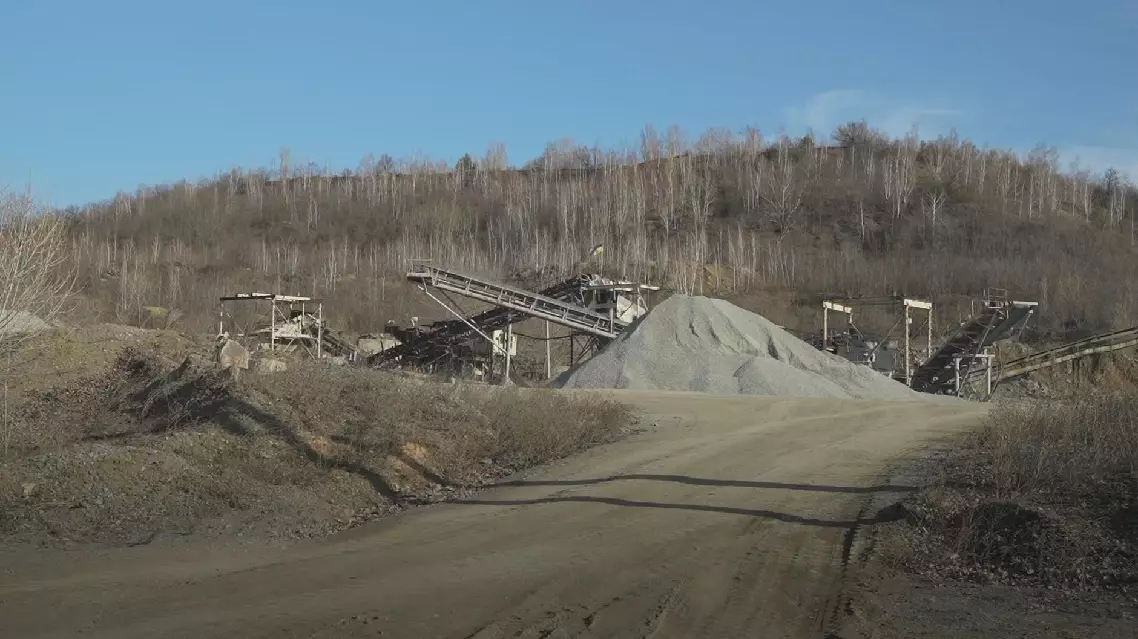
US interest in Ukraine's critical minerals draws public backlash



